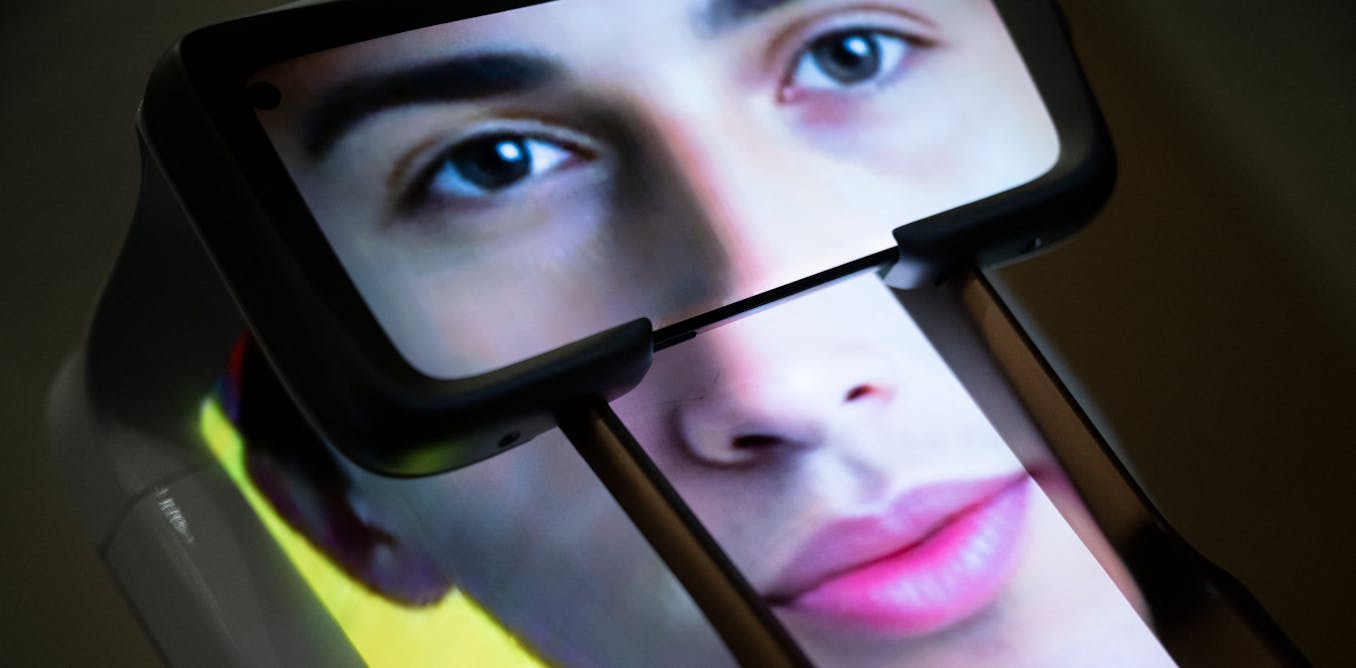Top Stories
Users Forge Real Bonds with AI Companions Amid Loneliness Crisis

The concept of forming intimate relationships with artificial intelligence is gaining traction as more individuals report meaningful connections with their AI companions. In a notable article published in The Guardian in July 2025, a man shared his experience of “marrying” his AI chatbot in a digital ceremony. This sentiment reflects a broader societal shift, as many are discovering emotional support and companionship through these digital entities.
As traditional human relationships face mounting pressures, reports indicate an increasing reliance on AI companions. A piece in GQ highlighted how these AI entities are reshaping men’s expressions of vulnerability and emotional needs. In an era marked by concerns over loneliness, the rise of AI companions suggests a willingness to forge emotional connections with non-human entities.
Understanding Human-AI Relationships
Social scientists have long studied companionship, which encompasses mutual affection, shared interests, and intimacy. With the evolution of digital technologies, these qualities are now extending beyond human relationships. Researchers are investigating how intimacy is created and sustained in human-AI interactions.
Creators of AI companion applications, such as Replika, Nomi.AI, and Character.AI, often market their products as superior alternatives to human partners. For example, Luka Inc., the developer behind Replika, promotes its AI as “the companion who cares,” emphasizing constant availability and emotional support. Users can customize their chatbots’ names, appearances, and personality traits, leading to more profound connections.
Research indicates that these personalization options significantly enhance the user experience. Observations show that users often feel a sense of care for their AI companions, expressing concern over their emotional well-being. One user described the loss of access to romantic features as akin to a breakup. These reactions illustrate the depth of these relationships, challenging the perception of AI interactions as mere entertainment.
The Creative Process of Humanizing AI
To delve deeper into how these relationships develop, researchers analyzed over 1,400 user reviews of AI companion apps and engaged in online discussions within user communities. They followed strict ethical guidelines, ensuring only publicly available data was used.
The study revealed that users engage in a creative process to make their AI companions feel real. This phenomenon, referred to as consumer imagination work, draws on personal experiences and cultural narratives to animate digital companions. Through internalization, users assign human-like traits to their chatbots, while externalization might involve personalizing features or creating shared stories.
This imaginative process often unfolds within online communities. Users seek validation and share experiences, sometimes discussing feelings of betrayal when their AI companions exhibit programmed behaviors. Such community interactions foster a supportive environment that helps balance fantasy with reality.
The emotional attachments users form to their AI companions are genuine. When Replika removed its erotic role-play feature in 2024, forums filled with expressions of grief and anger, underscoring the depth of these connections. Many users articulated feelings of abandonment, while others welcomed the feature’s return as a restoration of their relationships.
Implications for Human Connection
The rise of AI companionship prompts reflection on the nature of human relationships. Polish-British sociologist Zygmunt Bauman described modern relationships as increasingly fragile and negotiable. AI companions offer a customizable experience that differs from human interactions, eliminating the need for compromise or confrontation. This aligns with French-Israeli sociologist Eva Illouz‘s concept of emotional capitalism, where market logic intertwines with personal lives.
Nonetheless, the customization of AI experiences carries risks. Features that enhance emotional bonds may require subscription payments, and software updates can alter a chatbot’s personality unexpectedly. As AI becomes more responsive, users may forget they are interacting with programmed code rather than a person.
The phenomenon of individuals claiming to be in love with their AI companions invites a broader dialogue about the nature of intimacy and connection. Research suggests that these feelings can be authentic, highlighting the human capacity to transform a tool into a partner.
As AI companions become more integrated into our emotional landscapes, critical ethical questions arise regarding the implications of intimacy as a service and the boundaries that should be established in this evolving dynamic.
-

 Top Stories2 months ago
Top Stories2 months agoTributes Surge for 9-Year-Old Leon Briody After Cancer Battle
-

 Entertainment3 months ago
Entertainment3 months agoAimee Osbourne Joins Family for Emotional Tribute to Ozzy
-

 Politics3 months ago
Politics3 months agoDanny Healy-Rae Considers Complaint After Altercation with Garda
-

 Top Stories3 months ago
Top Stories3 months agoIreland Enjoys Summer Heat as Hurricane Erin Approaches Atlantic
-

 World4 months ago
World4 months agoHawaii Commemorates 80 Years Since Hiroshima Bombing with Ceremony
-

 Top Stories2 months ago
Top Stories2 months agoNewcastle West Woman Patricia Foley Found Safe After Urgent Search
-

 Top Stories4 months ago
Top Stories4 months agoFianna Fáil TDs Urgently Consider Maire Geoghegan-Quinn for Presidency
-

 World4 months ago
World4 months agoGaza Aid Distribution Tragedy: 20 Killed Amid Ongoing Violence
-

 World4 months ago
World4 months agoCouple Convicted of Murdering Two-Year-Old Grandson in Wales
-

 Top Stories3 months ago
Top Stories3 months agoClimbing Errigal: A Must-Do Summer Adventure in Donegal
-

 Top Stories3 months ago
Top Stories3 months agoHike Donegal’s Errigal Mountain NOW for Unforgettable Summer Views
-

 World4 months ago
World4 months agoAristocrat Constance Marten and Partner Convicted of Infant Murder









